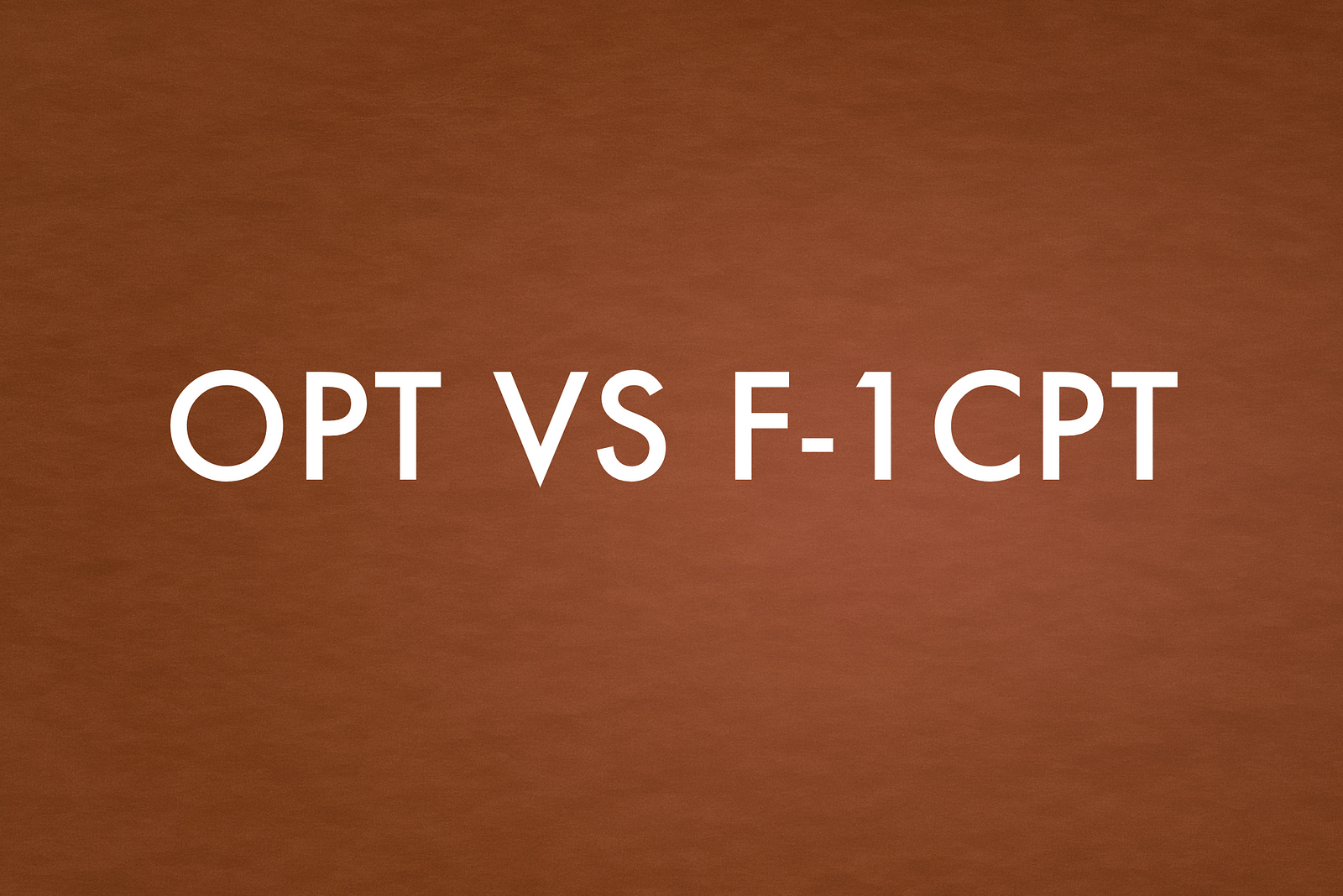I’m a firm believer that information is the key to financial freedom. On the Stilt Blog, I write about the complex topics — like finance, immigration, and technology — to help immigrants make the most of their lives in the U.S. Our content and brand have been featured in Forbes, TechCrunch, VentureBeat, and more.
See all posts Frank GogolIs OPT a better working option than CPT for a student?
If you are a student in the USA on an F1 visa, you are probably unsure of your visa’s conditions and your rights to work. You are probably keen to get to work and wondering about about things like whether you are allowed to work on or off campus and if you can work once you have finished your degree or while waiting on an employer to sponsor you. This article will try to put your mind at rest by answering these questions.
First of all, once you are a student in the United States on an F1 visa, you are entitled to work on campus. There is likely to be a lot of competition for these jobs so, to avoid disappointment, we would suggest you look into finding one pretty soon after you arrive. If you are not lucky enough to be one of the students who gets a job on campus, there are other options available available to you. Once you have been participating in your course for nine months, you can legally work using the practical training options. There are two available, CPT, Curricular Practical Training, and OPT, Optional Practical Training.
Curricular Practical Training CPT allows you to work off campus once the job you are working in is related to your field of study. If you wish to apply for CPT you will need to first get clearance from the academic department in your university. The work is usually done on a Co-op or intern status and often counts as credits towards your university grades. Jobs which are located within the city you are studying in are favourable and, sometimes, jobs outside of the city limits are blocked. Your designated school official, DSO, should be on hand to help you find a company that will qualify for CPT. Normally, you will need to have completed nine months, one academic year, of your course before you can start your CPT, however, in some cases you DSO may activate you CPT earlier. If you successfully apply for CPT your DSO will also need to help you update your I-20 status. CPT can last for a maximum of twelve months and must stop once you have graduated, if you break either of these terms you may damage your chances of getting OPT.
Optional Practical Training Unlike CPT, OPT does not count towards your university grades. It will allow you to work for up to twelve month in your field of study. You may chose to use your CPT either while you are studying, Pre-completion OPT, or after you graduate, Post-completion OPT. If you chose to to use Pre-completion OPT, the amount of time you spend working will be deducted from the amount of Post-completion OPT you have. If you are doing a STEM degree, Science, Technology, Engineering and Mathematics, you may be able to extend your OPT by an extra twenty four months. Generally speaking, only students who have no CPT option tend to use their OPT before graduation. If you want to activate your OPT you will need to fill out an application form one hundred and twenty days before you wish your employment to commence. You need to have started your OPT within two months of graduating or else you will lose the option and be out of status.
Have you had any experience working with CPT or OPT? Do you have any advice for people in a similar position? Get in touch and let us know in the comments.
About Stilt:
Stilt provides
We take a holistic underwriting approach to determine your interest rates and make sure you get the lowest rate possible.
Learn more about us on Wikipedia or visit us at https://stilt.com. If you have any questions, send us an email at team@stilt.com.

